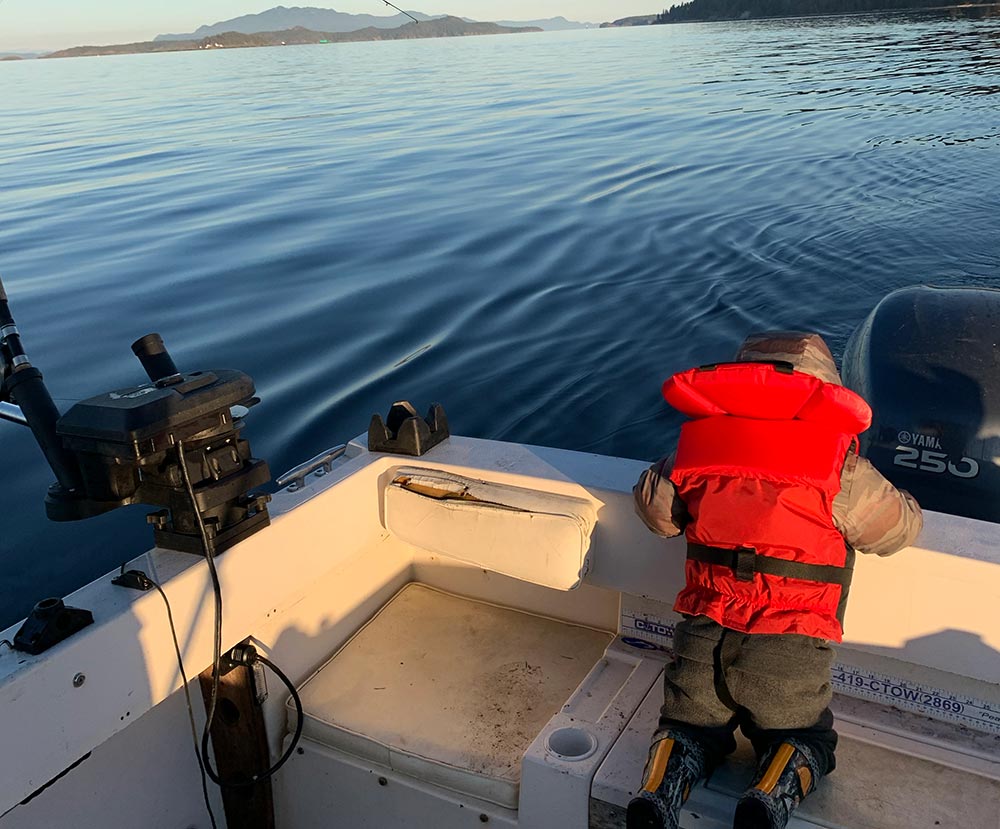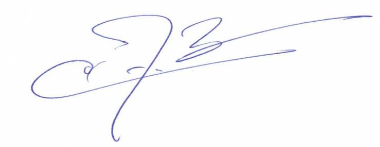
The Honourable Joyce Murray,
Minister of Fisheries, Oceans and the Canadian Coast Guard
Minister’s Office,
200 Kent Street,
Station 15N100
Ottawa, ON
K1A 0E6
Re: Rejection of Chinook Retention Proposals
Dear Minister Murray,
The Public Fishery Alliance (PFA) is a broad–based non-profit society consisting of almost one thousand Canadian anglers, angling organizations, angling dependent businesses and volunteer salmon and habitat restoration groups. Our collective interests are the sustainability of our marine and fresh water fisheries, especially for salmon and steelhead. We advocate for abundant healthy fish stocks that support all fisheries as well as unbiased and data driven management.
The Board of Directors and membership of the PFA are gravely concerned and deeply disappointed by your recent decision to reject the two very modest Chinook salmon retention proposals for portions of PFMAs 17, 18, 19 (South East Vancouver Island) & 28 (Howe Sound) for the months of April and May 2022.
You must be aware that Chinook salmon is the most important species to the Public Fishery in British Columbia and that anglers recognize the need for conservation when specific stocks are experiencing decline. Since your predecessor, Minister Wilkinson, implemented the wide-ranging non-retention policy for Chinook in 2018 through much of Southern BC waters during the important April to August fishing season, our Public Salmon Fishery has been all but gutted.
With the best of intentions, the Sport Fishing Advisory Board (SFAB) submitted a suite of very modest Chinook retention proposals in 2020 that were designed in collaboration with your own fisheries and stock assessment staff using the most recent data. These small areas represented vital opportunity for salmon anglers and avoided migrating stocks of concern, while the measures to protect declining Fraser Chinook were in place. Even though the management framework model used by your own salmon team deemed the proposals as low or no risk in the spring of 2021, then Minister Jordan rejected them. Both the SFAB and angling community were devastated by her decision and equally puzzled at the time that no rationale was offered as to why the proposals were refused.
Anticipating an opportunity to amend the SFAB suite of proposals to offer even greater protection to Fraser Chinook in the hope they would be approved for spring of 2022, we were dismayed to learn that your DFO Salmon Team openly stated they would not discuss any proposals from the SFAB related to Chinook retention in April and May 2022.
While it is clearly the responsibility for your department to work toward providing Canadian anglers sustainable fishing opportunity and by signing the 2010 Recreational Vision Statement DFO is required to work with the SFAB in developing fisheries for the Canadian public, this is apparently not happening in the Pacific Region. Equally, in your own mandate letter from Prime Minister Trudeau, it states you should “Work to support sustainable, stable, prosperous fisheries through the continued implementation of the modernized Fisheries Act, …” as well as “Advance consistent, sustainable and collaborative fisheries arrangements with Indigenous and non-Indigenous fish harvesters.” It seems your regional staff are impeding your ability to meet that mandate. We re-iterate, the Board of Directors of the PFA and our membership are deeply concerned that our salmon fishery is being destroyed unfairly and unnecessarily plus the SFAB process is being ignored and rendered irrelevant.
In the 1960s, when the SFAB was first created, the explicit purpose of the process was for knowledgeable BC anglers to inform the Fisheries Minister directly about the specific fisheries challenges and potential opportunities on the West Coast. Regular meetings were held with the Minister in attendance. Previously, it was determined the Minister was not receiving important information from Pacific Region staff about the Public Fishery. The SFAB process provided the Minister the opportunity to hear issues firsthand. This Ministerial role has now disappeared to the detriment of relations between West Coast anglers and Ottawa decision makers.
Unfortunately, it seems there are once again biased personnel within your Pacific Region senior fisheries management staff who continue to block viable Public Chinook fishing opportunity for no valid reason. The stated rationale for their decisions is often contentious. For that reason, we fear your key fisheries decisions are being distorted by Pacific Region management who are pursuing their own different agendas.
Even though the SFAB learned DFO would not consider amended Chinook retention proposals in 2022, several PFA members, approached their local Liberal Members of Parliament as a way of seeking help with this important issue. Subsequently, a meeting was arranged with Neil MacIsaac, one of your senior Policy Team members, who suggested two parts of the SFAB suite of Chinook retention proposals were potentially acceptable and nearly approved in 2021. With some minor amendments to lower any risk even further, Neil brought the two re-worked fishing plans for April and May 2022 to your attention for immediate consideration. Among others, Patrick Weiler, Liberal MP for West Vancouver – Sunshine Coast – Sea to Sky Country was supportive of those proposals. Yet again, it seems your senior regional staff persuaded you to reject them as well, this time on the grounds of policy not merit, citing they wouldn’t re-open the 2021-2022 Salmon Integrated Management Plan. This reason for denial of critically important fishing opportunities makes no sense.
Recreational fishing is sustained by ‘expectation of catch’ and the ‘opportunity to fulfill that expectation’. Public fishery social and economic success is measured in time, not pieces of fish. In commercial and indigenous fisheries, later opportunities are provided to make up for lost early season opportunities. Lost time in the public fishery cannot be recovered. This is why these early season very modest proposals were so important, particularly in difficult times. We must express to you we fear the Public Chinook Fishery in BC is on the verge of collapse and desperately needs a life line to maintain itself while there is an unbearably slow transition to Marked Selective Fisheries.
As a consequence of crushing South Coast management actions in place since 2018, and the loss of April and May 2022, the PFA has lost all confidence in senior Pacific region leadership.
The PFA does not raise these issues with you lightly or for hyperbole. Many of our members have decades of experience dealing directly with Pacific Region DFO in a number of capacities. We have never before experienced this level of Departmental inertia and unwillingness to resolve fundamentally basic fisheries management issues. This current impasse, which will lead to another crippling year for the South Coast’s most important angling region, defies rational thinking. As Canadian tax payers, we expect better.
Yours in conservation,

signed on behalf of the Board of Directors
Christopher Bos
Director
Public Fishery Alliance
(778) 967-2363
[email protected]
Copied to:
The Honourable John Horgan – Premier of British Columbia
Patrick Weiler – MP, West Vancouver – Sunshine Coast – Sea to Sky Country, Liberal
Ken McDonald – MP, Avalon, Liberal (Chair FOPO)
Serge Cormier – MP, Acadie – Bathurst, Liberal (FOPO)
Brendan Hanley – MP, Yukon, Liberal (FOPO)
Ken Hardie – MP, Fleetwood – Port Kells, Liberal (FOPO)
Mike Kelloway – MP, Cape Breton – Canso, Liberal (FOPO)
Robert J. Morrisey –MP, Egmont, P.E.I., Liberal (FOPO)
Caroline Desbiens – MP, Beauport-Côte-de-Beaupré-Île d’Orléans, Bloc Quebecois (Vice Chair FOPO)
Rick Perkins – MP, South Shore-St. Margarets, Conservative (Fisheries Critic & Vice Chair FOPO)
Bob Zimmer – MP, Prince George-Peace River-Northern Rockies, Conservative (FOPO)
Mel Arnold – MP, North Okanagan-Shuswap, Conservative (FOPO)
Clifford Small – MP, Coast of Bays – Central – Notre Dame, Conservative (FOPO)
Jagmeet Singh – MP, Burnaby South, NDP
Lisa Marie Barron – MP, Nanaimo-Ladysmith, NDP (Fisheries Critic & FOPO)
Randall Garrison – MP, Esquimalt – Saanich – Sooke, NDP
Alistair MacGregor – MP, Cowichan – Malahat – Langford, NDP
APPENDIX-
There are important elements of the revised proposals that need to be explained in this letter.
Proposal for SE Vancouver Island
The recommended DFO mitigations to the original Area 17-19 SE Vancouver Island Proposal, which already ranked as “low impact to Fraser stocks of concern or local stocks” were: “removal of Porlier Pass, (portions of sub-area 17-3) to avoid encounters with stocks of concern” and “augmenting bio-samples from this area”.
The revised SE Vancouver Island proposal far exceeded the above recommended mitigations by reducing the allowable fishing area (including the recommended sub-area 17-3 exclusion), by 40% percent to address summer run Nanaimo Chinook concerns, limiting to hatchery retention, implementing an 80 cm maximum size limit, and supporting increased bio sampling.
Proposal for Howe Sound
The recommended DFO mitigation to the original 28-1 to 28-5 Howe Sound proposal, which was already ranked as “overall low risk based on low catch and effort”, was “adjustments to the proposed fishing area”. The issue of Squamish/Cheakamus Chinook was raised much later by DFO and delayed the process.
The revised Howe Sound proposal, while not altering the fishing area, reduced fishing time by over 40%, while limiting retention to hatchery Chinook, and implementing an 80 cm maximum size limit. These measures further minimized Fraser River stock concerns, provided protection for Squamish Chinook and exceeded the benefit requested by a small fishing area reduction.
The following comments by DFO Stock Assessment, concisely explain the risk to stocks of concern before the revised proposals were developed: “The Fraser Spring 5 (2) shows 2.7% impact in April…derived from one single sample over seven years at Defense Island. DFO would consider this a rare event, even near zero…. In terms of Squamish/Cheakamus Chinook concerns stock assessment stated: DNA samples can’t really tell the difference between Squamish and other mainland inlet Chinook stocks, so they are not necessarily all Squamish.
Finally, they add that Squamish Chinook are fall runs, the implication of which is April and May fishing will have little impact on adult spawning stock because of run timing.
Please Note: It is clear from these summaries of the two revised 2022 proposals that they qualify for approval as data- supported Chinook retention fisheries that could have proceeded this year.
